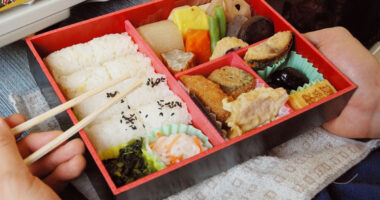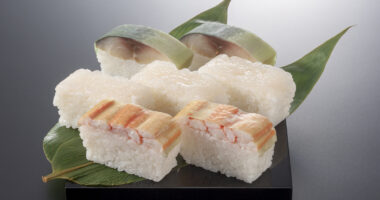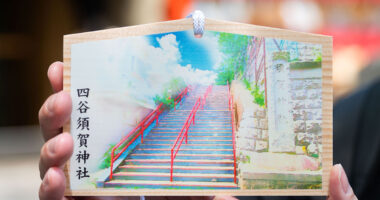Traveling to Japan is an adventure filled with bucket list moments. You might take pictures of ancient temples, try a quiet tea ceremony, or wander through a seven-floor bookstore that sells everything from manga to philosophy. After a few days of sightseeing and exploring, something else begins to shine through. It’s not just the places that leave a mark. The people do, too.
You could be sitting on a train watching the countryside roll by when someone next to you gives a polite nod. You want to respond, maybe start a conversation, but the words stay stuck. Or you might find yourself at a neighborhood festival surrounded by the warmth of music and laughter, wishing you knew how to join in. These small moments are often the most memorable. They are quiet reminders that travel is not just about where you go, but who you meet along the way.
- Why learning social phrases matters
- Starting a conversation: basic introductions
- Breaking the ice: casual conversation starters
- Sharing about yourself
- Making plans and inviting others
- Expressing gratitude and goodbyes
- Tips for using Japanese phrases effectively
- Going beyond words: building deeper connections
- Final thoughts
Why learning social phrases matters
Whether your trip is a few weeks or several months, being able to start a conversation in Japanese brings a completely different layer to your experience. It lets you step into everyday life, not just as a visitor, but as someone who is truly present and engaged. You do not need to be fluent. Even a few simple phrases can help you ask questions, share your story, and build real connections.
This guide is made for those moments when a smile turns into a conversation and a simple hello could lead to a lasting memory. You will learn Japanese phrases for greeting someone, sharing your interests, and casually asking if they would like to grab a coffee.
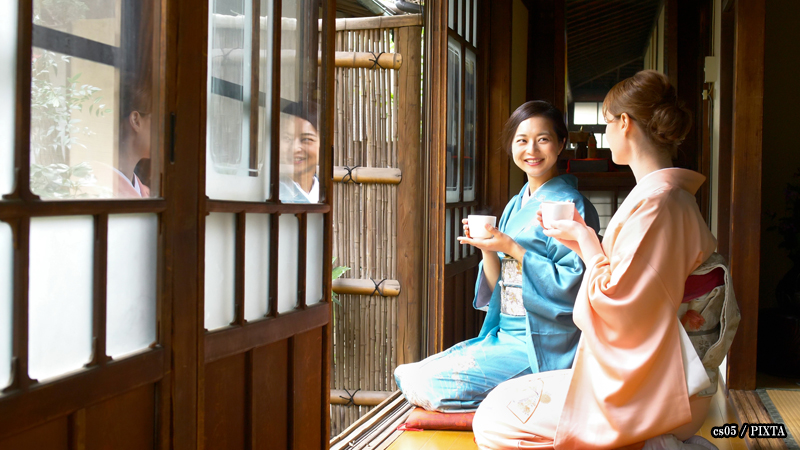
Photo for illustrative purposes
Starting a conversation: basic introductions
Getting to know someone begins with a polite and friendly introduction. Japanese culture places a high value on respectful greetings, so using the right words will go a long way. Even if your vocabulary is limited, starting with a few key expressions can spark a connection and show your respect for their language and culture.
The following simple phrases will help open doors to new friendships and make you feel more comfortable in social settings.
Essential phrases
- Nice to meet you.
hajimemashite
はじめまして。 - My name is [your name].
watashi no namae wa [your name] desu
私の名前は [your name] です。 - I’m from [your country].
[Your country] kara kimashita
[Your country] から来ました。 - I’m visiting (Japan) as a tourist.
Kankō de kite imasu
観光で来ています。
When you’re introducing yourself, it’s helpful to put a few phrases together to create a simple self-introduction.
For example, you can say: Hajimemashite. Watashi no namae wa John desu. America kara kimashita. Kankō de kite imasu. This means “Nice to meet you. My name is John. I’m from America. I’m here as a tourist.” It’s short, easy to remember, and makes your intentions clear.
Also, if you’re meeting someone who is older than you or if the situation feels a bit more formal, it’s a good idea to add a small bow when you say these phrases.
In Japanese culture, body language, like bowing, shows respect and sincerity. Even a slight bow can make a big difference, helping you come across as polite and genuine, which people in Japan really appreciate during social interactions.
Breaking the ice: casual conversation starters
After you’ve exchanged introductions, the next step is to keep the conversation flowing by finding common interests. Asking about hobbies, preferences, or travel experiences is a natural and easy way to do this. These light and friendly topics help the other person feel comfortable and open to chatting.
Common icebreakers
Here are some simple questions you can use to break the ice:
- Where are you from?
Dochira kara kimashita ka?
どちらから来ましたか? - Do you like music?
Ongaku wa suki desu ka?
音楽は好きですか? - What kind of music do you like?
Donna ongaku ga suki desu ka?
どんな音楽が好きですか? - Have you been abroad?
Kaigai ni itta koto ga arimasu ka?
海外に行ったことがありますか?
When the other person shares something with you, it’s important to show you’re listening and interested. Simple expressions like Tanoshisō desu ne! (“That sounds fun!”) or Hontō desu ka? Omoshiroi desu ne (“Really? That’s interesting.”) helps encourage the conversation.
Even short, enthusiastic responses—Sugoi! (“Wow!”), for example—can make a big difference. These little reactions help build rapport and make social interactions more enjoyable for both sides.
Sharing about yourself
When you start sharing a little about yourself, it naturally invites others to open up too. This exchange creates a friendly atmosphere where both sides feel more connected. Using simple phrases to talk about your interests or experiences helps reveal your personality and makes it easier for others to find common ground with you. It also makes the conversation feel more natural.
Talking about interests
Here are some useful ways to talk about your hobbies and interests:
- I like anime.
Anime ga suki desu
アニメが好きです。 - I enjoy hiking.
Haikingu ga suki desu
ハイキングが好きです。 - I’m learning Japanese.
Nihongo o benkyō shiteimasu
日本語を勉強しています。
Talking about travel
Talking about your travel experiences is another great way to personalize the conversation:
- It’s my first time in Japan.
Nihon wa hajimete desu
日本は初めてです。 - I love Japanese culture.
Nihon no bunka ga daisuki desu
日本の文化が大好きです。 - I’m staying in [city/town]
[City/town] ni taizai shiteimasu
[City/town] に滞在しています。
Try to add a few details about why you decided to visit or what you’ve enjoyed so far. Sharing your thoughts this way adds a warm, personal touch that often encourages people to engage more deeply. It shows you are genuinely interested and open, which is a key part of building friendships in any culture.
Making plans and inviting others
Making plans with someone you’ve just met can feel a little intimidating, but in Japan, even a small invitation is often appreciated. It shows you’re genuinely interested in spending time together, and that simple gesture can turn a light conversation into a budding friendship.
If your exchange is going smoothly and you sense a good vibe, suggesting something casual like grabbing coffee or visiting a festival is a natural next step.
Inviting someone
Here are some polite and friendly ways to invite someone:
- Do you want to go out for some coffee?
Kōhī o nomi ni ikimasen ka?
コーヒーを飲みに行きませんか? - Do you want to hang out sometime?
Kondo asobimasen ka?
今度遊びませんか? - Let’s go to a festival together.
Issho ni omatsuri ni ikimashō
一緒にお祭りに行きましょう。 - Do you want to join me for lunch?
Issho ni ranchi ni ikimasen ka?
一緒にランチに行きませんか?
Accepting or declining
Of course, you may be the one getting invited. Here are some phrases you can use, depending on the situation:
- Sounds good!
Ii desu ne!
いいですね! - I’d love to.
Zehi
是非。 - Sorry, I’m busy that day.
Sono hi wa chotto isogashii desu
その日はちょっと忙しいです。
If you’re not sure about someone’s schedule, you can ask:
- When are you free?
itsu tsugō ga ii desu ka?
いつ都合がいいですか?
Even if the plans do not work out immediately, simply extending the invitation shows genuine interest in getting to know the other person. In Japanese social settings, the gesture itself is often appreciated as a sign of openness.
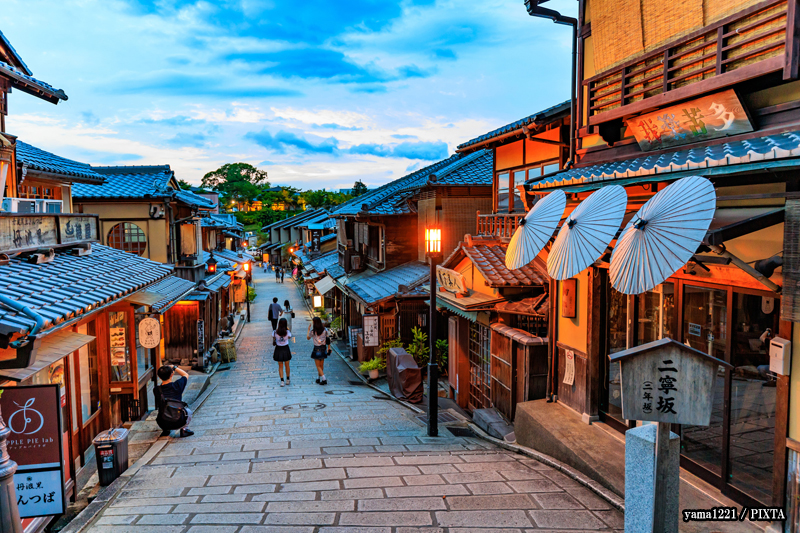
Photo for illustrative purposes
Expressing gratitude and goodbyes
Showing appreciation holds just as much weight in casual conversations as it does in formal ones. Whether you have shared a fun conversation or someone has spent time helping you, a sincere thank-you can leave a positive impression. Similarly, parting with polite words helps bring the interaction to a smooth and respectful close.
Saying thank you
- Thank you for your time.
Ojikan o itadaki arigatō gozaimasu
お時間をいただきありがとうございます。 - It was nice talking with you.
Ohanashi dekite tanoshikatta desu
お話しできて楽しかったです。 - Thanks for today.
Kyō wa arigatō gozaimashita
今日はありがとうございました。
Parting phrases
- See you again.
Mata aimashō
また会いましょう。 - Take care.
Ki o tsukete kudasai
気をつけてください。 - Good night.
Oyasumi nasai
おやすみなさい。
Tips for using Japanese phrases effectively
Knowing the right words is a great start, but how you use them also matters. These extra tips can help you feel more confident and make your interactions more natural and respectful.
Learn the right level of formality
Most of the phrases in this guide are spoken in polite Japanese, which is ideal for casual conversations where mutual respect is important. It’s a safe and friendly tone for meeting new people.
Try to avoid switching to very casual speech, like dropping endings or using slang, unless the other person does so first. (Speech patterns picked up from Japanese pop culture aren’t always a good role model here). In Japan, using polite language shows humility and consideration.
Listen and repeat
One easy but effective way to stay engaged is to repeat a word or phrase your conversation partner just used. This confirms that you’re listening and helps ensure you understood correctly. It also gives you a chance to practice pronunciation in a natural setting. For example, if someone says they like a certain hobby, you can echo it back with interest: Ah, tozan, sugoi! (“Oh, hiking — wow, that’s awesome!”).
Body language and gestures
Spoken language is only part of communication in Japan. Small gestures matter—like nodding as someone speaks, smiling warmly, or bowing lightly during greetings or thanks. These subtle cues show you are being respectful.
On the other hand, it’s best to avoid big, dramatic hand gestures or speaking too loudly, as those styles can feel out of place in Japanese settings. Keeping your tone and movements calm will make interactions more culturally appropriate.
Going beyond words: building deeper connections
What really helps you connect with people in Japan goes beyond language. It starts with your attitude. Asking thoughtful questions shows that you care and are genuinely interested in the other person’s world.
Be curious
Ask about local traditions, regional dialects, or food specialties. People appreciate sincere interest.
- What’s this area famous for?
Kono chiiki no meibutsu wa nan desu ka?
この地域の名物は何ですか?
You can also ask about festivals, school life, or sports. Keep the tone light and curious.
Share something from your culture
Remember, cultural exchange works both ways. When someone shares something with you about Japan, it’s nice to offer something in return. It could be a greeting from your native language, a tradition you enjoy, or even a holiday dish.
- In my country, we say…
Watashi no kuni de wa… to iimasu
私の国では…と言います。
Sharing where you’re from will help balance the conversation. It will make things feel more natural and less one-sided.

Photo for illustrative purposes
You do not need perfect grammar or a big vocabulary to connect with people in Japan. Practicing a few commonly used phrases and maintaining a friendly attitude is all you need to make a place in the locals’ hearts.
Tips: You can also try using language exchange apps available online, such as HelloTalk or Tandem. These apps will help you overcome any difficulties you might have.
Easy practice idea
Before heading out, review two or three simple phrases you want to use that day. You can jot them down in a small notebook or take a note on your phone. This small habit makes a big difference in how confident you feel.
Encourage responses
When you want to keep a conversation going, ask open-ended questions. These invite more than just a yes or no and help you learn more about the person you are speaking with.
- What do you usually do on weekends?
Shūmatsu wa fudan nani o shimasu ka?
週末は普段何をしますか? - Any recommendations around here?
Kono atari de osusume wa arimasu ka?
この辺りでおすすめはありますか?
As you listen, pay attention to how people respond. If they use a word or phrase you do not know, try to remember it and use it next time. That is how real-life learning happens—bit by bit, one conversation at a time.
Final thoughts
Visiting Japan is as much about appreciating the culture as it is about the language. Locals often notice when visitors take the time to respect their customs, even if the words aren’t perfect.
Start small, practice often, and let your curiosity lead. As you become more confident, your experience in Japan will expand beyond sights and tastes to include the warmth of genuine human connection.



